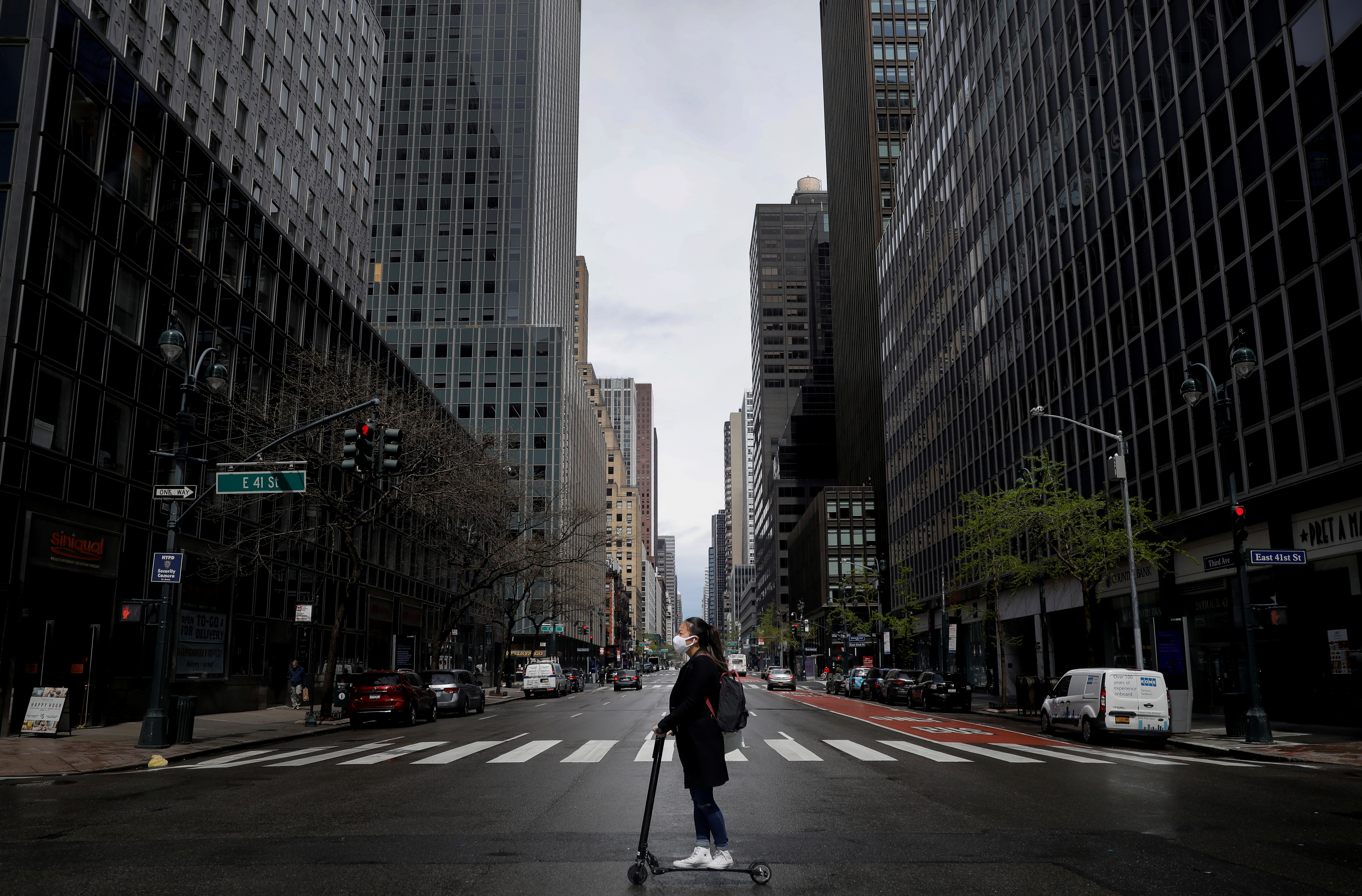
By Steve Holland and Jeff Mason
WASHINGTON (Reuters) – The White House on Monday directed all people entering the West Wing, where the daily operations of President Donald Trump’s administration are carried out, to wear masks after two aides tested positive for the coronavirus, administration officials said.
The new guidelines, released in a memo to the president’s staff on Monday afternoon, reflect a tightening of procedures at the highest levels of the U.S. government over fears that Trump and Vice President Mike Pence could be exposed to the virus.
Trump’s military valet and Pence’s press secretary both tested positive for the coronavirus last week.
The 73-year-old president said on Monday he did not think those cases suggested the White House system had broken down.
“I felt no vulnerability whatsoever,” Trump said, adding he felt the situation was controlled “very well.”
Still, the president said he would discuss maintaining some distance from Pence, perhaps by communicating with him by phone, for a period of time. Pence worked at the White House on Monday but did not attend a news conference held in the Rose Garden. Officials who attended wore masks, and speakers used a different podium from the one used by Trump.
ABC News first reported about the memo, which also said unnecessary visits from other parts of the White House complex to the West Wing area, which includes the Oval Office and workspace for senior advisers, are being discouraged.
Officials who work near the president have been getting tested for the coronavirus but previously had not been wearing masks on a regular basis.
“Common sense has finally prevailed,” one senior administration official told Reuters.
Trump has been resistant to wearing a mask himself and has not put one on in public, though he said he tried some on backstage during a visit to a mask factory in Arizona last week.
On Saturday he met the top leaders of the U.S. military, the Joint Chiefs of Staff, and members of his national security team in the White House Cabinet Room. The officials did not wear masks but had been tested for the virus in advance, a Pentagon spokesman said, adding that social distancing measures appeared to have been met. Secret Service agents in the room wore masks.
The president is in the age group that is considered high risk for complications with the coronavirus, which has killed more than 80,000 people in the United States alone and ravaged countries and economies worldwide.
Staff members including Jared Kushner, the president’s senior adviser and son-in-law, wore masks on White House grounds on Monday.
The White House said last week it was stepping up precautions for people who spend time around Trump and Pence, both of whom have resumed travel outside of Washington. The two men are being tested for the virus daily.
“In addition to social distancing, daily temperature checks and symptom histories, hand sanitizer, and regular deep cleaning of all work spaces, every staff member in close proximity to the president and vice president is being tested daily for COVID-19 as well as any guests,” White House spokesman Judd Deere said in a statement.
After Pence’s spokeswoman, Katie Miller, tested positive for the virus last week, Trump was asked whether people in the West Wing would begin to wear masks. He responded that people already were doing so. But he and his guests that day had not donned masks, and staff in the West Wing were not wearing them either.
Miller is married to Stephen Miller, a senior White House aide and speech writer for the president.
Some who had contact with Katie Miller have gone into partial quarantine. An administration official said Pence worked from the White House on Monday but would be maintaining distance from the president for the immediate future, in consultation with the White House medical unit.
“We can talk on the phone,” Trump said.
(Reporting by Steve Holland and Jeff Mason; additional reporting by Lisa Lambert, Diane Bartz and Phil Stewart; Editing by Rosalba O’Brien)











